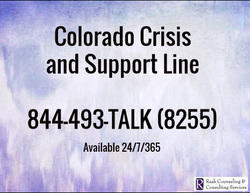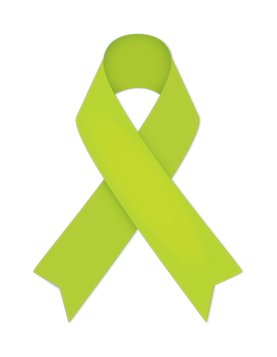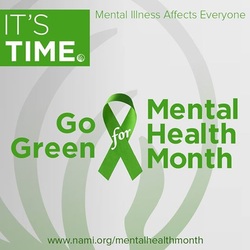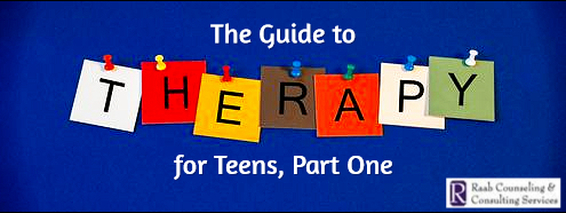|
Why is my Mom is Making Me Go to Therapy? If you are reading his post, you are probably one of two types of people:
My next few posts are all about helping parents and teens understand each other’s point of view about going to counseling. Today, I answer two very common questions from teens about therapy. “Can my parents make me go to counseling?” The answer is a little tricky. Legally, it varies from state to state. In Colorado, teens who are 15 years and older MUST consent to their own therapy. Parents have to give their permission for teens who are under the age of 15 to be seen by a counselor. The age limit might be different in your state, but written permission for therapy is required everywhere. So, if you are under 15, and live in Colorado, your parents can “make” you go to therapy. They can also strongly encourage older teens to go or make it a requirement in their home. What parents cannot do, is force you to talk or make you be honest with your therapist. This is something you have to decide for yourself, regardless of your age. “Why do my parents think I need to go to therapy?” Sometimes it can help to speak with someone who is objective, meaning they aren't part of your family, your school or your community. Some of the main reasons I see teens for counseling are when they experience:
This is just a short list of the things you can talk about in therapy sessions. Nothing is off limits. If you want to talk about it, go for it! Therapists are great listeners PLUS they'll offer suggestions and work with you to meet your goals. Check back next week for a post about what you can expect when you go to therapy sessions. I'll also be posting soon about what's up with your therapist and why you just might like therapy! Update: Check out the second and third parts of the series! The Guide to Therapy for Teens, Part Two: What to Expect in Counseling The Guide to Therapy for Teens, Part Three: What's the Deal with Your Therapist? Bethany Raab is a Licensed Clinical Social Worker in Denver, Colorado.
She is passionate about helping teens and families be happy and healthy!  One in four American students will be affected by youth violence this year. (Students Against Violence Everywhere, SAVE) Youth violence includes bullying, school violence, criminal acts, gang violence, teen dating violence and more. These issues can have an immense impact on victims. Teens who have been hurt may respond in a variety of ways including (but not limited to) anger outbursts, depression, anxiety or self-harming behaviors. Now for some good news! The National Criminal Justice Reference Service reports that teen violence has decreased significantly in the last 20 years. This is the result of a lot of hard work by teens, parents, schools, law enforcement and various government and private agencies. While this is fantastic, it does not mean the problem of youth violence has been solved. There is still more work to be done. Wondering how you can help? Here are 5 ways you can help support the anti-youth violence message at home:
Now is a great time to give these a try in honor of National Youth Violence Prevention Week (March 23-27, 2015). Even if you miss the week celebration, there is never a bad time to talk to your kids about youth violence. Bethany Raab is a Licensed Clinical Social Worker in Denver, Colorado.
She is passionate about helping teens and families be happy and healthy!  844-493-TALK (8255) 844-493-TALK (8255) On August 12, 2014, the Colorado Crisis and Support Line opened its doors. This new statewide crisis hotline is open to anyone in Colorado who needs emergency mental health assistance or is seeking extra support. All callers can expect to speak to a trained mental health professional. Phones are answered 24 hours a day, 365 days a year. The crisis line phone number is 844-493-TALK (8255) You do not need to live in Denver to use the hotline! It is available to EVERYONE in Colorado! The crisis line advocates can assist callers with a variety of personal and mental health emergencies. Here are a few reasons you might call the hotline:
Please, if you need immediate assistance with a life-or-death situation, call 911 or go to your nearest emergency room. The hotline is run by the Colorado Department of Human Services (CDHS) and Metro Crisis Services. Click here to read the CDHS press release on the opening of the crisis line. Bethany Raab is a Licensed Clinical Social Worker in Denver, Colorado.
Welcome back to my blog series in honor of May being designated Mental Health Awareness Month. If you haven't already, you can click below to read parts one and two. Please read and share with your network to help spread awareness about mental illness and mental health care! Mental Health Awareness Month: Myths and Facts, Part 1 Mental Health Awareness Month: Myths and Facts, Part 2 Myth #4: Mental health treatment does not work. Fact: Mental health treatment does work and it can help you! Research is being done around the world on various types of therapy. This research is important, especially because it has given us what are called “evidenced base models” of therapy. What this means is that valid, scientific research proves that certain kinds of therapy do work! Several models used by therapists around the United States are evidenced based and widely used. These include but are not limited to: Acceptance and Commitment Therapy (ACT), Cognitive Behavioral Therapy (CBT), Dialectical Behavior Therapy (DBT), and Eye Movement Desensitization and Reprocessing (EMDR). Do not hesitate to ask a potential therapist about what models of therapy they use in their practice and whether or not it is evidenced based. You can click on any of the models listed above to learn more. Click here to view a guide about evidenced based models. Of course, it is possible for you to see a great therapist who does evidenced based work and not see much benefit. The key to therapy being helpful is not only having a skilled and trusted therapist but YOU! I once heard this in a training presented by my colleague Brenda Bomgardner: There are 168 hours in a week. If you spend 1 of those hours in therapy and the other 167 hours ignoring or forgetting what you learned, therapy may not be very effective. Therapy can be hard. Therapy asks a lot of the client, but it is worth it! Myth #5: If I go to therapy, I will have to take medication. Fact: Many mental health problems can be successfully treated with only therapy. Some mental illnesses are best treated with a combination of medication AND therapy. It is important to note that most therapists cannot prescribe medication, as most of us do not have medical training. Therapists who are trained as social workers, counselors, or psychologists are not allowed to give medical advice as it is out of our area of expertise. If you begin therapy, a counselor or therapist might recommend you see a doctor to consider medication. If this happens and you choose to follow the recommendation, you will need to schedule an appointment with a medical doctor. Some general practitioners may be willing to prescribe medications for certain mental health reasons. You may also prefer or need to see a psychiatrist, depending on your individual situation. These professionals are medical doctors who are specifically trained to provide medication and, sometimes, therapy to care for mental illnesses. Your therapist and your doctor will work together with you to determine which path is best for you and your needs. Here is my next challenge to you: Do a quick online search of therapists in your area. See who is out there and take a look at the models of therapy they provide. Choose one to learn more about and take time to read at least one article. It is good to be informed! Check back tomorrow for a bonus post on self-care! Bethany Raab is a Licensed Clinical Social Worker in Denver, Colorado.
 Welcome to Part 2 of my blog series focused on common myths about mental illness! Click here to read Part 1. In honor of May being Mental Health Awareness Month, I am sharing my thoughts on some common myths about mental illness and mental health treatment. This is the second of a 4 part series for the month of May. My goal is to help you better understand mental illness and to share ideas on how to get help if necessary. Please share with anyone who might benefit from this information! Here we go! Myth #2: Mental health treatment is not available in my area. Fact: Mental health treatment is available. To be fair, I work in a metropolitan area that is saturated with mental health professionals. Here, as in other urban areas, one can easily find a large network of social workers, counselors and therapists. If you live in a smaller, more rural area, don’t assume you cannot get help! While you may have fewer options to choose from, help is available. Talk with your primary care physician, pediatrician, local hospital, nearby university/college or someone at your child’s school for guidance or referrals. You can also search online through therapist profile listings such as Psychology Today* or Good Therapy*. Additionally, some agencies and therapists in larger cities offer their services by phone or online video conferencing to serve people in more remote areas. Myth #3: Mental health treatment is too expensive. Fact: Mental health treatment can be affordable. Yes, seeing a therapist can be pricey, but consider what you could gain by spending some time with a trained professional whose priority is to help you through difficult, stressful times. Mental health treatment is an investment in your well-being and your future! However, if the full rates in your area are still more than you can afford, you have options. Often, private therapists accept insurance plans or offer a sliding scale. Many states and counties offer community mental health services that are reduced fee or covered by insurance. (Check out the Colorado Behavioral Health Council to learn more about community mental health services in Colorado.) Another option is to see if your employer offers a benefit known as Employee Assistance Services (EAP). Many people assume EAP services are used only if you are in trouble at work and required to seek counseling. This is only the beginning of what an EAP provides! Employees with EAP benefits can typically access between 2 and 10 free (yes, FREE!!) counseling sessions depending on the specific benefit package. These sessions may be used for any issue you or your family may be experiencing. EAP therapists can often continue seeing you for their typical fee (or maybe even a reduced rate) after your benefits are used. They can also help you find another provider if necessary. Here is another challenge for you: Do a search on your insurance company's website and see how many therapists are available in your area. Also, find out if your employer provides EAP benefits and what those benefits include. Why do this challenge? Consider it an opportunity to educate yourself on your own resources! Check back tomorrow for Part 3 of this series! * I am not sponsored by Psychology Today or Good Therapy and do not benefit in anyway by including these company names in my blog. Their inclusion is simply meant to be informative. Other therapist finder websites exist and can easily be found through a basic web search. Photo from Flickr. Creative Commons. Some rights reserved by FaxPilot. Bethany Raab is a Licensed Clinical Social Worker in Denver, Colorado.
 Did you know that 1 in 4 American adults experiences mental illness every year? Or that 20% of children ages 13 to 18 experience mental health problems in any given year? (National Alliance on Mental Illness) May has been designated “Mental Health Awareness Month” in order to bring awareness to mental illness in America. In my years as a social worker, I have heard many people speak about mental illness as something to be kept secret. Some people are ashamed that they are not well and hesitate to seek help as a result. In honor of Mental Health Awareness Month, I will be discussing 5 myths about mental illness and seeking mental health care. I will also include a bonus post about self-care. This is the first of a 4 part series to be posted throughout the remainder of May. My goal is to help you better understand mental illness and mental health treatment, as well as to offer some ideas on how to get help if necessary. Please share with anyone who might benefit from this information! Here are the topics I will cover over the next 10 days:
Let's get started. Myth #1: Mental illness means I am crazy and will always be crazy. Not so. Crazy is a word often applied with little concern or compassion for those experiencing mental illness. I do not believe having any sort of mental illness makes you "crazy." I believe it means you are facing a challenge that can be managed and often overcome with time, patience, hard work, support and professional help. My challenge to all of my readers is to watch your language. No, I'm not talking about swearing or anything along those lines. What I am asking is that you observe how often you use the word "crazy" to describe someone. Unfortunately, it has become socially acceptable to label someone behaving in an odd or out of control manner as being "crazy" rather than acknowledging they may be dealing with mental illness. Let's change this bad habit and practice acceptance instead. Learn more by reading the rest of the series! Mental Health Awareness Month: Myths and Facts, Part 2 Mental Health Awareness Month: Myths and Facts, Part 3 Mental Health Awareness Month: Bonus Post! Bethany Raab is a Licensed Clinical Social Worker in Denver, Colorado.
"Make each day your masterpiece." This quote by John Wooden is resonating with me today, bringing to mind the idea that every day is a piece of the bigger picture of your life. This has led me to ponder several questions: What does this idea mean for those days that are stressful, difficult or just downright bad? Do the bad periods take away from the overall picture or beauty of your life? How can you persevere through the hard days? See below for my thoughts! Everyone has tough days. For a teen, a big test, friendship problems or a relationship ending could lead to a bad day. For a parent, feeling stressed about work, worrying about their children or simply being tired may lead to a difficult day. Whatever the cause, bad days can seem overwhelming and can often be filled with strong emotions. So what can you do if you are having a bad day today? Here are a few ideas: 1) Remember that today will end. I know this sounds cliche, but it can be helpful to remember that the sun will set, even on the hardest of days. Tomorrow is a new day. 2) Remember that strong emotions will pass. Part of what makes humans unique among all other species is our ability to experience emotions. Strong feelings, including anger and sadness will pass. Rather than bottle these emotions up, find a healthy way to express them outwardly. Talk to a friend or parent, write, draw, run or sing it out. You will feel better in the long run if you do not ignore your emotions. 3) Remember to take care of yourself. If you are experiencing a stressful time, remember to prioritize your well-being. Does spending time with friends make you feel good? Make plans together. Does exercising help you feel calm? Go for a walk or make it a point to hit the gym. Does the idea of attending another activity make you feel exhausted? Politely decline the invitation. Does taking a bath or reading help you feel calm? You get the idea. The most important thing is to make time for YOU! 4) Remember to look for the good. Find something to be grateful for every day. Purposefully seeking out the positive can help counteract negative thoughts. Write things you are grateful for down in a journal so you can be reminded of them during difficult times. 5) Remember the big picture. Your life is an incredible and special piece of art. In the end, the mixture of good and difficult times will serve to make your story uniquely yours and more beautiful than you can imagine! Please, share your thoughts on this topic! What can you do today to make today a part of your masterpiece? Bethany Raab is a Licensed Clinical Social Worker in Denver, Colorado.
 Fall and winter months bring familiar images of holiday parties, hot chocolate and, in Colorado, skiing and other winter sports. The cooler months bring excitement for many, while others have a different experience. Some people notice increased sadness, low energy levels, weight gain, a tendency to oversleep, irritability and a general "blah" feeling beginning in the fall and often lasting through the winter. These and other symptoms of the "winter blues" affect approximately 14% of Americans according to the National Center for Biotechnology Information. However, 6% of Americans experience a more marked set of symptoms known as Seasonal Affective Disorder, often referred to as SAD. Both the "winter blues" and SAD are frequently linked to a decrease in exposure to light during the fall and winter months. According to the Mayo Clinic, the actual causes of SAD are largely unknown. The good news is that SAD is a treatable condition. The Mayo Clinic recommends several types of treatment for SAD including light therapy and medication, both of which should be discussed with your doctor. Psychotherapy is also recommended as an effective form of treatment. Click here to learn more from the Mayo Clinic. Now for some more good news! A variety of alternative treatments for SAD can be utilized at home on their own or combined with a plan you discuss with your doctor. Here are a few ideas:
If you are feeling the effects of SAD as winter approaches, rest assured that you are not alone! Give some of these suggestions a try today. Finally, don't hesitate to speak with your doctor if you feel as though you need help managing symptoms of Seasonal Affective Disorder. Bethany Jones Raab is a Licensed Clinical Social Worker in Denver, Colorado.
|
Welcome!
Every blog post you see on this page is written especially for teens and their parents! Like it? Pin it!
Follow me!
Categories
All
|



 RSS Feed
RSS Feed